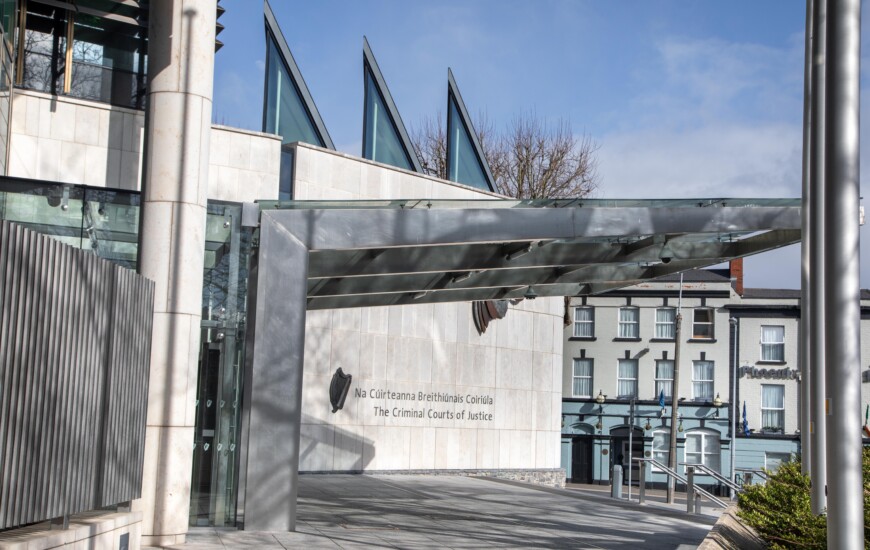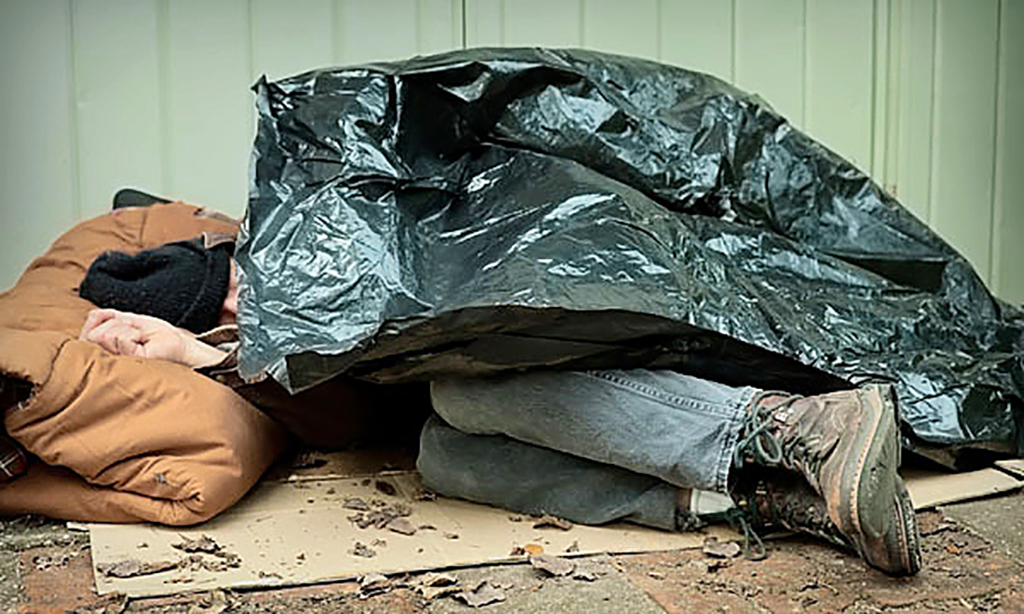Man jailed after being caught with €240,000 worth of drugs and submachine gun
Dublin People 25 Oct 2024
By Sonya McLean
A man who was caught with almost €240,000 worth of various drugs and a submachine gun along with a silencer has been jailed for seven years.
Emmett Henry (35) of The Oaks, Northwood, Dublin 9, pleaded guilty at Dublin Circuit Criminal Court to possession of a submachine gun and silencer at an apartment block in Finglas on November 25, 2022. He also pleaded guilty to possession of various drugs for sale or supply at the same apartment block in Finglas in the same month.
The court heard that Henry was working for the property management company in charge of that apartment block at the time, and an intelligence-led operation led to a search of the apartment block on November 18, 2022.
Henry was living in the apartment block, and a warrant was executed to search his home where gardaí discovered a cannabis growing factory.
Diarmuid Collins BL, prosecuting, indicated to the court that there were photographs to illustrate what gardaí discovered on entering the flat.
There were 1,500 cannabis jellies on a kitchen table being dried by a fan. There were also moulds for the jellies and the dye used to colour the end product. Gardaí also found a cooking pot in the kitchen with cannabis in it and a document outlining the melting temperature of various different types of drugs.
There was also cannabis in plant form in an upstairs hotpress, and a bedroom had been converted into a cannabis grow-house, including insulated walls and doors, spraying systems for the plants and various other apparatuses used in growing cannabis, Mr Collins told the court.
Gardaí also discovered €14,370 in cash. In a locked storage area in a different area of the apartment block, gardaí also recovered €7,300 worth of cannabis. Further drugs, including €75,400 worth of cannabis and €69,000 worth of cocaine, were also uncovered. Henry’s fingerprints were found in the area where the drugs were stored.
Mr Collins told the court that the jellies were worth an estimated €43,200, the plant material was worth €4,100 and the mature cannabis plants were worth €35,200. The value of the total drugs seized was worth just under €240,000.
Mr Collins said that Henry was interviewed six times but exercised his right to silence.
A number of days later a caretaker working in the same apartment block was carrying out some electrical work and discovered a bag containing firearms. He contacted gardaí and a submachine gun, a silencer and 14 rounds of ammunition were found to be in the bag.
Mr Collins said Henry’s DNA was recovered on the bagging around the items.
They were seized and a subsequent ballistic examination found that the serial number had been “deliberately obliterated”, Mr Collins said. The ammunition and the silencer fitted the gun and they were both found to be in good working order.
Counsel said the weapon had “undergone a skilled conversion to render it to be able to shoot lethal ammunition” rather than blanks as it had previously done.
Henry claimed in a follow-up interview with gardaí that the storage area had been unlocked, and a lot of people would have had access to it. Another caretaker told gardaí that it was always locked, and you needed a key to open that area.
Henry has 11 previous convictions, dating back to 2014, for mostly road traffic offences and one for theft.
Judge Orla Crowe said Henry had been a “trusted operative.” She noted that the drugs did not belong to him, and his role had been to hand them out, but she said it was a sophisticated operation in which he had a significant role.
She said the subsequent discovery of the firearm, ammunition and silencer added “another sinister layer” to the offending.
Judge Crowe noted that both offences had presumptive minimum mandatory sentences, ten years in the case of the drugs offence and five years for the firearms offence. She said the legislation allowed for a judge to depart from these sentences if it would be unjust to impose them.
She said she was of the view that the court could depart from the minimum mandatory sentences in the “exceptional circumstances” of this case.
She noted that aggravating factors in the drug offence included the value of the drugs, as well as Henry’s active and trusted role. She said that in the firearms offence having the weapon and silencer was inherently a serious matter.
She took into account mitigating factors such as the extensive work Henry has done on the rehabilitation of his drug problem, which was at the root of his offending, his very difficult childhood, personal circumstances and his “valuable” guilty pleas.
Judge Crowe imposed consecutive sentences totalling seven and a half years. She suspended the final six months under Probation supervision to incentivise Henry’s continued rehabilitation.
Michael O’Higgins, SC, defending, told the court that Henry dropped out of school at 14 years old and later began to binge drink before becoming addicted to cocaine and MDMA.
Counsel said what followed was “a cycle of debt which he traded off by holding drugs”. “He became consumed by addiction,” he said.
He said Henry said it was “a weight off his shoulders when he got caught” and he has since become drug free.
Mr O’Higgins said previously Henry had been vulnerable to anxiety and depression and engaged in substance abuse as a coping mechanism.
“He was caught up in all this because he had a serious drug addiction himself. He has since made a very significant turnaround for a person who had a very significant drug problem,” counsel submitted to the court.
“He is not perfect. He has previous convictions,” Mr O’Higgins acknowledged.











